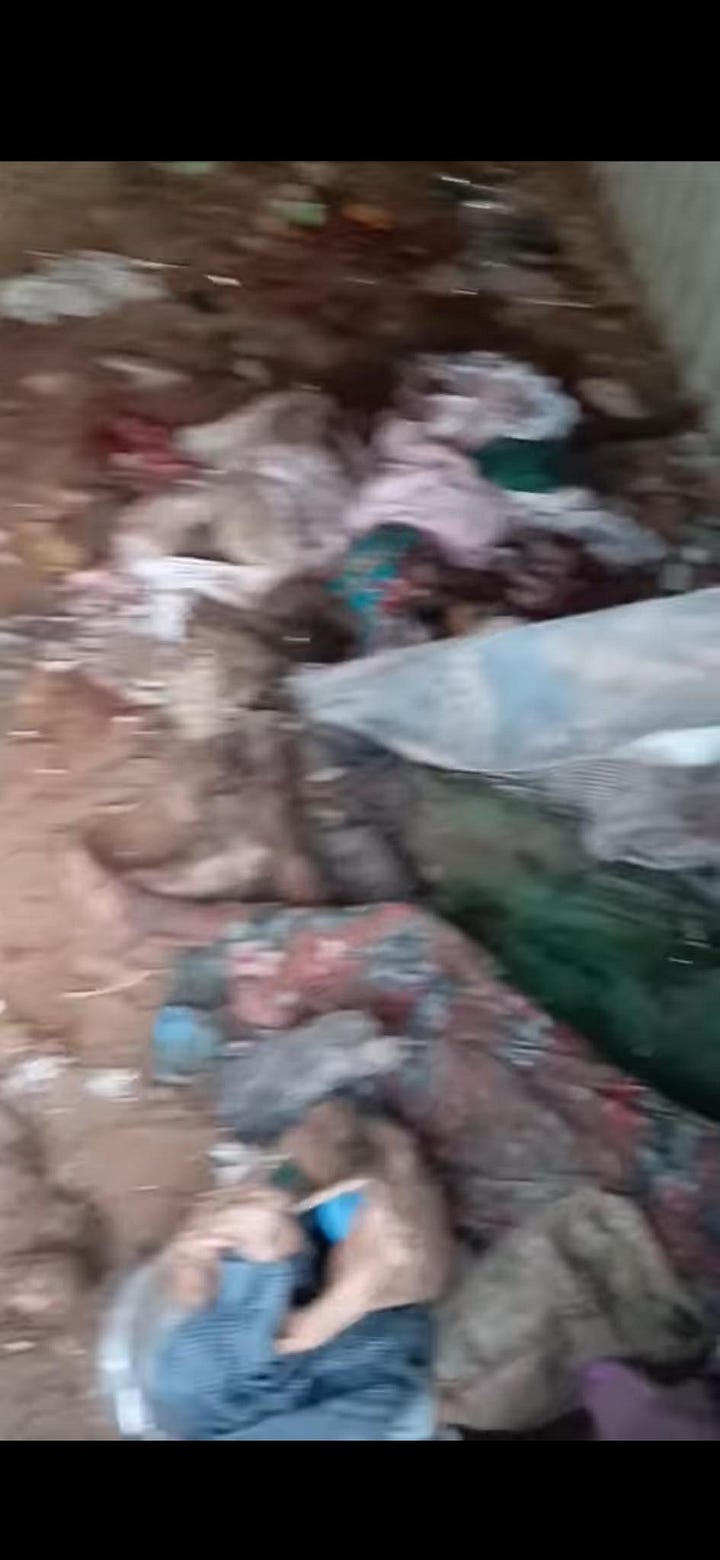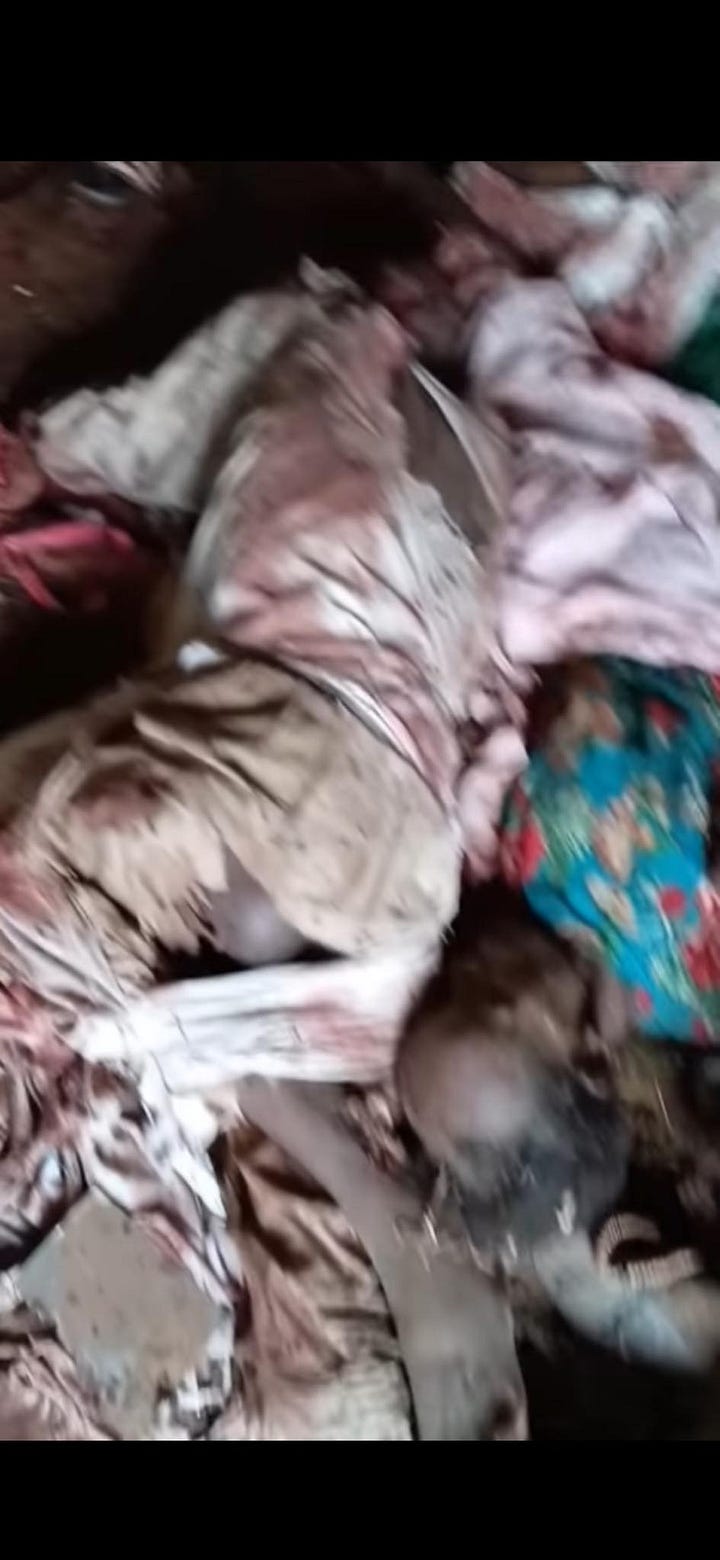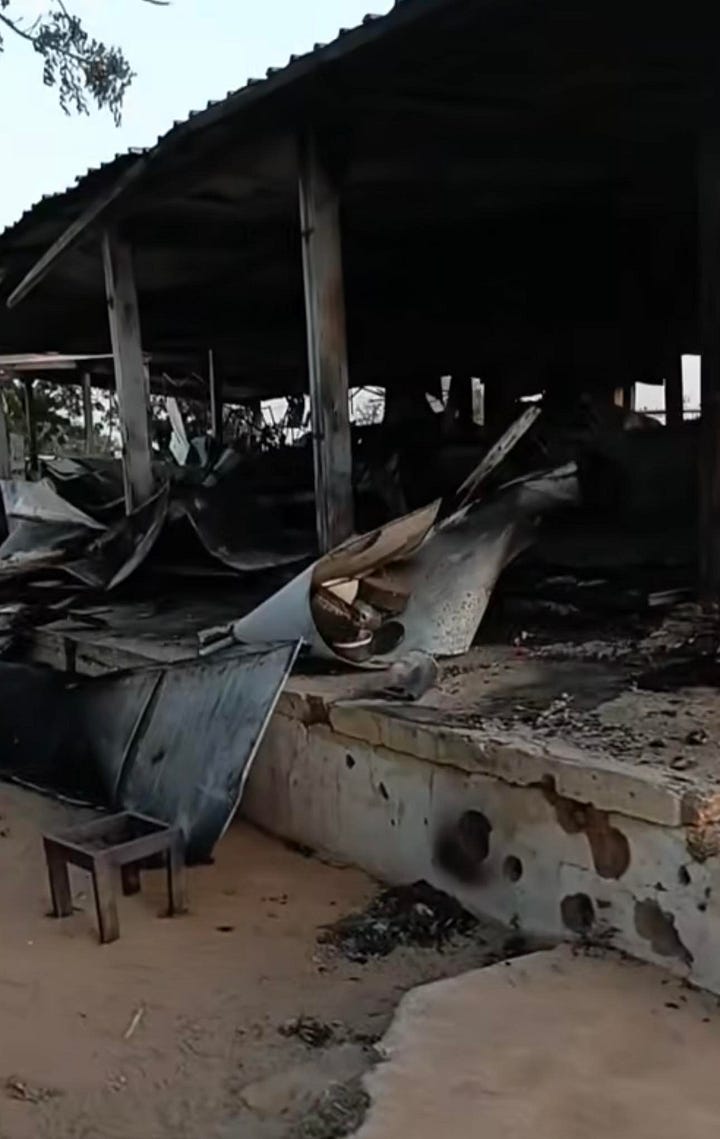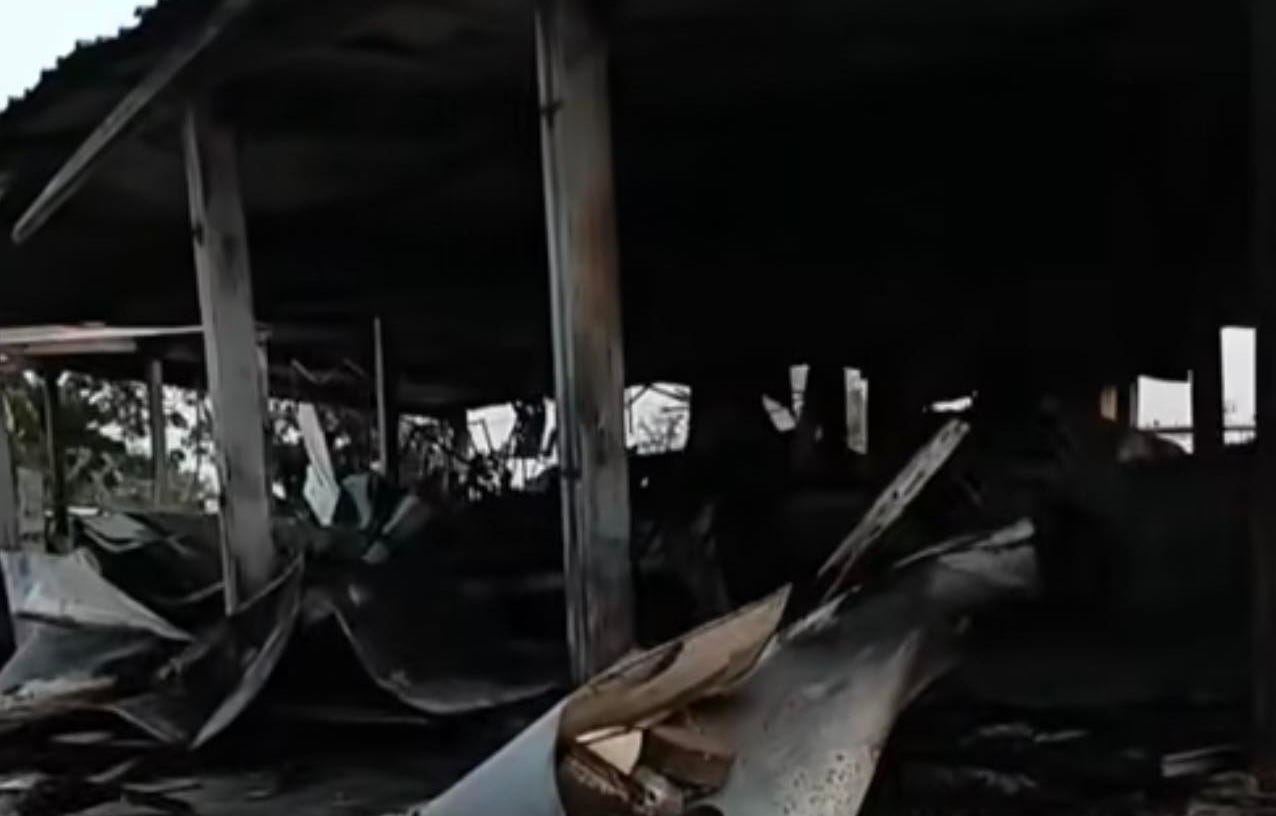Dozens killed in RSF and army strikes in North Darfur
Escalating drone and air campaigns deepen ethnic targeting and civilian toll
At least 80 people were killed over the weekend in North Darfur State as drone attacks by the paramilitary Rapid Support Forces (RSF) and the Sudanese Armed Forces (SAF) struck civilian-populated areas, continuing a devastating cycle of aerial warfare that increasingly erases the line between military and civilian targets.
The RSF launched drone and artillery strikes on El Fasher – hitting a displacement and religious sanctuary – while the Sudanese army bombed the RSF-held town of Al-Kuma, targeting a social gathering.
The incidents underscore how both factions – each claiming to defend the nation – have turned their weapons on communities they perceive as sympathetic to the other, transforming the war into an ethnically charged campaign of collective punishment.
According to witnesses and footage verified by Sudan War Monitor, RSF-operated drones and artillery struck Dar Al-Arqam, a religious displacement center inside the campus of Omdurman Islamic University in El Fasher, on Friday night, killing at least 60 civilians – including 17 children (three infants) and 22 women – and wounding 57 others.
Most victims suffered severe burns or shrapnel wounds. Witnesses said the attack began with drone strikes that collapsed shelters and was followed by incendiary munitions that sparked fires across the compound.
In a statement Saturday, the El Fasher Resistance Committee accused the RSF of executing a coordinated series of strikes on Dar Al-Arqam from Friday into Sunday morning. The committee said the attacks deliberately targeted shelters housing displaced families – mainly women, children and the elderly – killing and injuring scores.
Many victims, it added, were burned alive inside metal caravans used as makeshift homes, while others remained trapped beneath collapsed structures as fires raged through the site. The group described conditions in the city as “beyond catastrophic,” accusing the RSF of committing acts of genocide against civilians “under the silent gaze of the world.”
“An RSF drone bombed the Dar Al-Arqam shelter, killing dozens of unarmed civilians yesterday (Friday) and this morning (Saturday) at the center and at Omdurman Islamic University. Bodies remain trapped beneath the rubble, while others were burned alive inside the shelter’s caravans. Children, women, and the elderly were killed in cold blood, many of them completely incinerated by the strategic drone in a deliberate act of revenge.”
“There are also hundreds of dead and wounded inside residential neighborhoods due to continued bombardment and drone attacks. The situation has surpassed the limits of catastrophe and genocide inside the city, while the world remains silent.”
“Everyone here is dying—by bombardment, hunger, or disease. Every day, the city loses more than thirty innocent lives, counted as martyrs who await God’s justice. God is with us, no matter what they do; the truth will always prevail,” the statement seen by Sudan War Monitor said.
The Dar Al-Arqam strike came less than a month after RSF drones hit Al-Safiya Mosque during dawn prayers in the Safiya neighborhood of El-Fasher, an attack that killed more than 75 worshippers on September 19. Both assaults take place amid the RSF’s two-year siege of El Fasher and its push to capture the 6th Infantry Division headquarters, the army’s last functioning garrison in Darfur.
The Sudan Doctors’ Network condemned the October 11 assault as “a full-fledged act of genocide,” accusing the RSF of using a scorched-earth strategy intended to depopulate El Fasher’s civilian districts. The network said international silence had emboldened the militia to continue what it described as the “systematic extermination of unarmed civilians.”
The El Fasher Resistance Committees Coordination confirmed the death toll at 60, saying “bodies were scattered across the area, some burned beyond recognition.” Local medics reported that most victims were displaced families who had sought refuge in the compound after earlier bombardments elsewhere in the city.
Army bombardment of Al-Kuma
The following day, on Saturday morning, a drone operated by the Sudanese military bombed Al-Kuma, northeast of El-Fasher, targeting a social gathering at the home of local religious leader Sheikh Ahmed Rabah. The attack killed at least 20 civilians, including women, children, and the elderly, and wounded many others.
Verified photographs and a video circulating online showed bodies lying as they were being prepared for burial, with a local community leader describing the incident as an addition “to the growing record of crimes,” by the Sudanese Armed Forces.
“These are innocent martyrs in a residential neighborhood who were treacherously struck with military equipment by the soldiers of [SAF Commander-in-Chief Abdelfattah] Al-Burhan. The Port Sudan government is targeting civilians in residential areas. This adds to the growing record of crimes committed by the Port Sudan regime — Al-Burhan’s regime, the regime of the Muslim Brotherhood, the National Congress Party, and the Islamic Movement.”
“They kill civilians as they sit in traditional gatherings meant to resolve community issues. They struck them today, on October 11, 2025, while they were in a social gathering, using a drone in a residential area — not a military facility. They were not soldiers, they had no weapons, and no military vehicles. These are the crimes of the Port Sudan regime — the regime that has tormented the Sudanese people, and whose atrocities continue to this day,” the local leader said.
Among those who were killed, according to a list circulating online, are Mousa Adam (55), Al-Sadiq Salah (15), Hassoun Adam Ahmed Rakza (11), Hamdatu Al-Hadi Iqal (12), Shehab Al-Sharif Rabah Dshish (42), Mousa Ahmed Mohammed Tars (27), Arafat Mahmoud Hamid (13), Amin Salah Maghazi (10), Ibrahim Mousa Ibrahim (57), Sadiq Ahmed Rabah (31), Mohammed Ali Al-Tahir (15), Sadiq Al-Hadi Abdullah (22), Moatasem Al-Naqi (17), Al-Muazz Adam Issa Rakza (16), Moawia Gasm Abdulrasoul (18), and Ammar Abu Daqo (18).
The Ziyadiya Tribal Council accused the army of systematically targeting Al-Kuma with airstrikes and alleged chemical weapons since the start of the war, calling the latest attack “a full-fledged crime against humanity.”
In a statement, the council said the bombing was “a deliberate attempt to terrorize and depopulate Ziyadiya areas,” describing it as a “direct assault on the tribe’s social and human identity.”
The council held the SAF leadership fully responsible and urged the Sudan Founding Alliance (SFA)—the RSF-aligned coalition that declared a parallel government more than two months ago—to “shoulder its moral and national responsibility” in defending civilians.
The SFA condemned the Al-Kuma airstrike as a “grotesque violation of international law,” calling it part of a “continuing pattern of genocidal and ethnic cleansing campaigns” waged by the Sudanese military. The alliance demanded urgent international intervention to halt the “systematic bombardment of non-military areas” and bring those responsible to justice.
“In a flagrant violation of international law and human rights conventions, the ‘Army of the Islamist Movement’ carried out a horrific drone attack on Saturday morning targeting unarmed civilians in the town of Al-Kuma, North Darfur, killing more than twenty people and injuring dozens of others with varying degrees of severity.
“The Sudan Founding Alliance (Taasis) strongly condemns and denounces this heinous crime, affirming that this attack is part of a systematic pattern of atrocities that amount to acts of genocide being committed against population groups in the Darfur region.”
“The alliance expresses its full solidarity and deepest condolences to the families of the victims, praying for mercy and forgiveness for the martyrs, and wishing a swift recovery to those wounded, including women and children who suffered serious injuries in the bombing.”
“The Sudan Founding Alliance further calls on the international community, regional organizations, and human rights bodies to take a firm stance against these repeated violations and to act urgently to halt the targeting of civilians and ensure adequate protection for populations in areas free from any military presence.”
The SAF’s weekend strike on Al-Kuma mirrors a long and bloody pattern of aerial assaults against RSF-held areas. In June 2025, the military bombed Al-Kuma’s main market, killing dozens of civilians during peak trading hours in one of the deadliest attacks since the war began.
In October 2024, SAF warplanes struck Kuma and Melit, killing at least 45 civilians and injuring more than 200. Two months later, in December 2024, the army launched coordinated market-day bombings across Darfur that killed nearly 200 civilians in what residents described as deliberate attacks meant to maximize casualties.
Earlier, in April 2024, an airstrike on Melit killed seven herders and more than 350 camels, in what appeared to be an indiscriminate assault on the region’s pastoral economy.
Al-Kuma is predominantly inhabited by the Ziyadiya, a powerful subsection of Darfur’s Arab nomadic tribes that have long formed the social and tribal backbone of the RSF. The town, under RSF control since mid-2023, is widely seen by army-aligned circles as one of the group’s “political incubators.”
This perception has made Al-Kuma a frequent target of SAF airstrikes, often justified as attacks on RSF positions but in reality devastating civilian areas—markets, homes, and community gatherings. Local leaders accuse the army of enforcing a policy of collective punishment against Arab populations accused of siding with the RSF.
Conversely, El Fasher, dominated by non-Arab groups such as the Zaghawa, Fur, Berti, and Tunjur, represents both the demographic and political opposite of Al-Kuma, though it included Arab residents before the war.
The city is home to the Darfur regional administration, led by Minni Arko Minnawi, the Darfur Regional Governor, a prominent Zaghawa commander and longtime rival of the RSF’s Arab leadership.
El Fasher’s neighborhoods are the last major urban centers still under SAF control in Darfur and shelter tens of thousands of displaced civilians, as well as fighters from Darfur’s historic rebel movements, including the Justice and Equality Movement (JEM) and Sudan Liberation Movement (SLM).
For the RSF, El Fasher holds immense symbolic value – seen as the “heart of resistance” and a political fortress of the non-Arab factions aligned with the Sudanese Armed Forces.
Photos
In this documents, local activists in El-Fasher list victims of the RSF attack on the IDP encampment in the city.
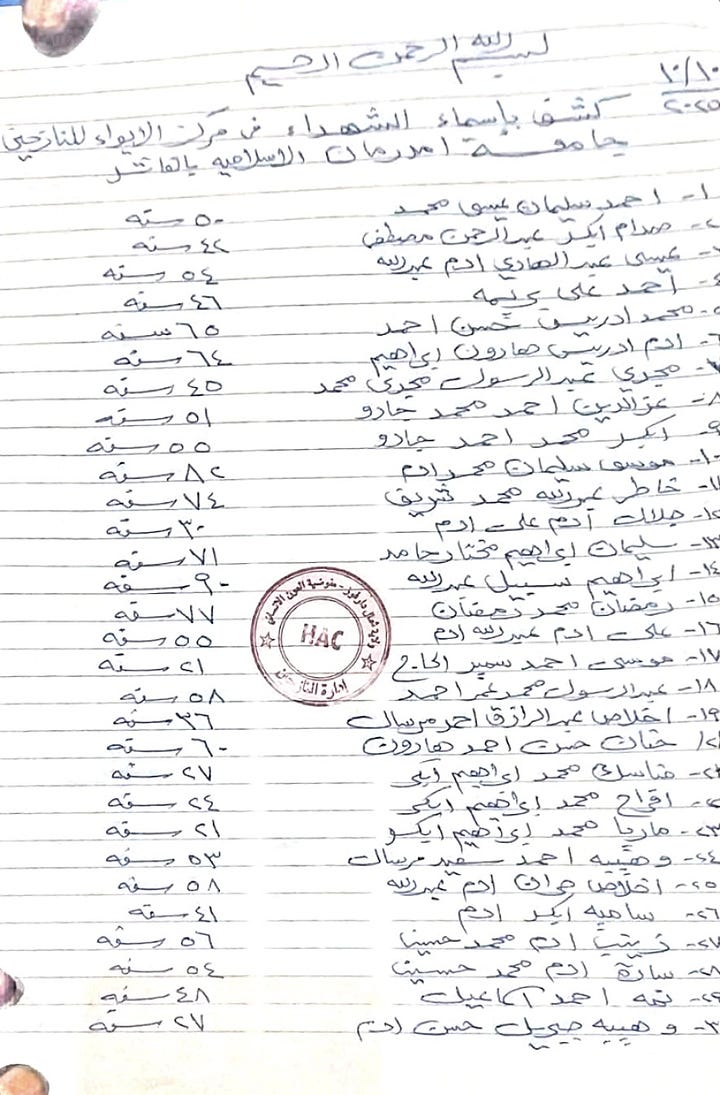
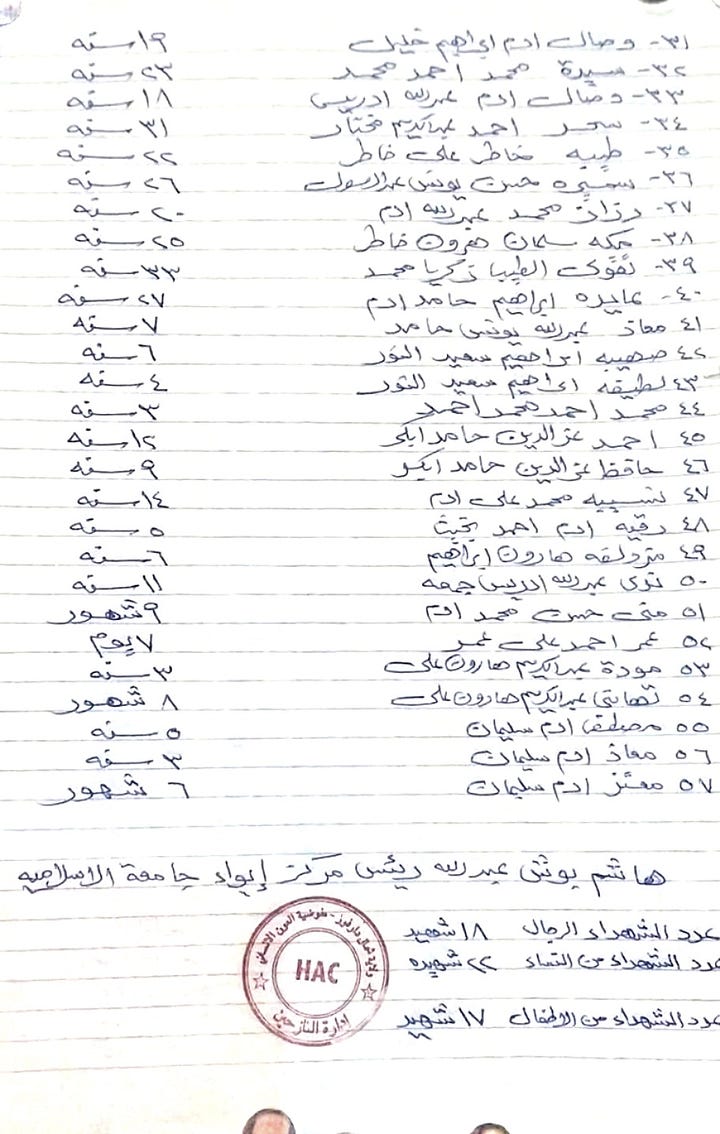
In these photos posted by activists, bodies of the victims of the paramilitary RSF attacks are seen.
